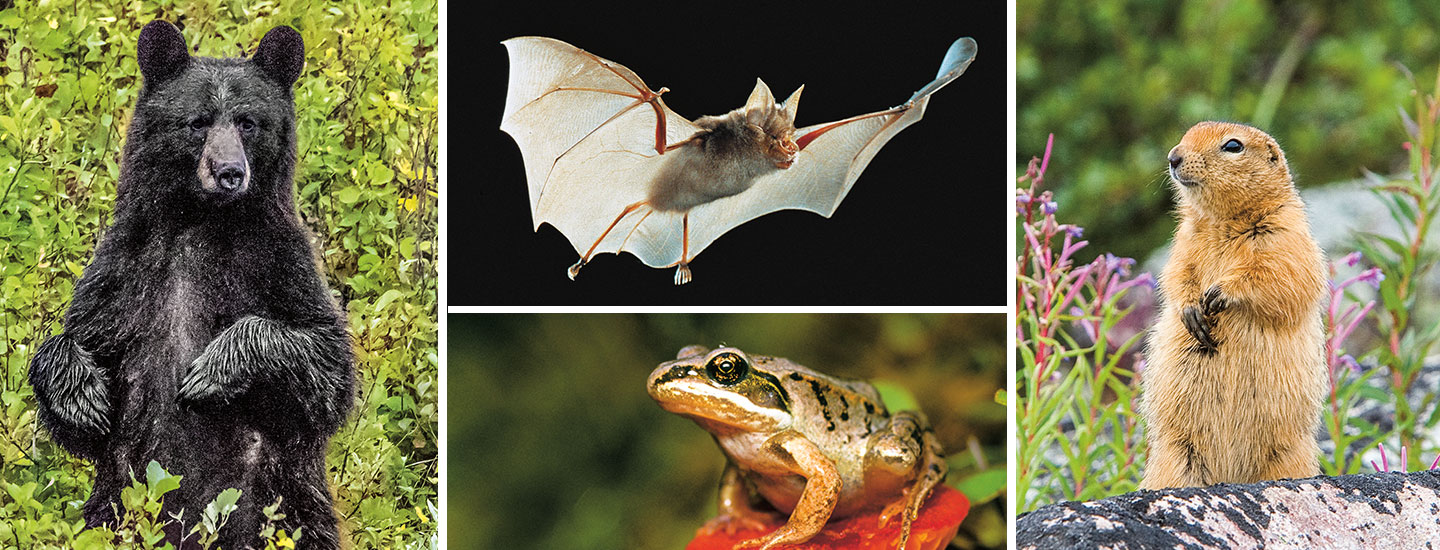What do animals do when it’s cold in the winter? Some head south to warmer places. Some grow a thick coat of fur, which traps heat close to their bodies. Others snooze until spring in a state called hibernation.
Hibernating animals spend the winter in a deep, sleep-like state. Their body temperatures drop. Their heart rates and breathing slow down. They don’t eat or drink until spring. Hibernation helps animals survive the time of year when food is scarce. Learn about some amazing things these four hibernating animals do during their long snooze.
What do animals do in the winter? Some head south to warmer places. Some grow a thick coat of fur. The fur traps heat close to their bodies. Others snooze until spring in a state called hibernation.
Hibernating animals spend the winter in a deep, sleep-like state. Their body temperatures drop. Their heart rates and breathing slow down. They don’t eat or drink until spring. Hibernation helps animals survive the time of year when food is scarce. Learn about some amazing things these four hibernating animals do during their long snooze.

